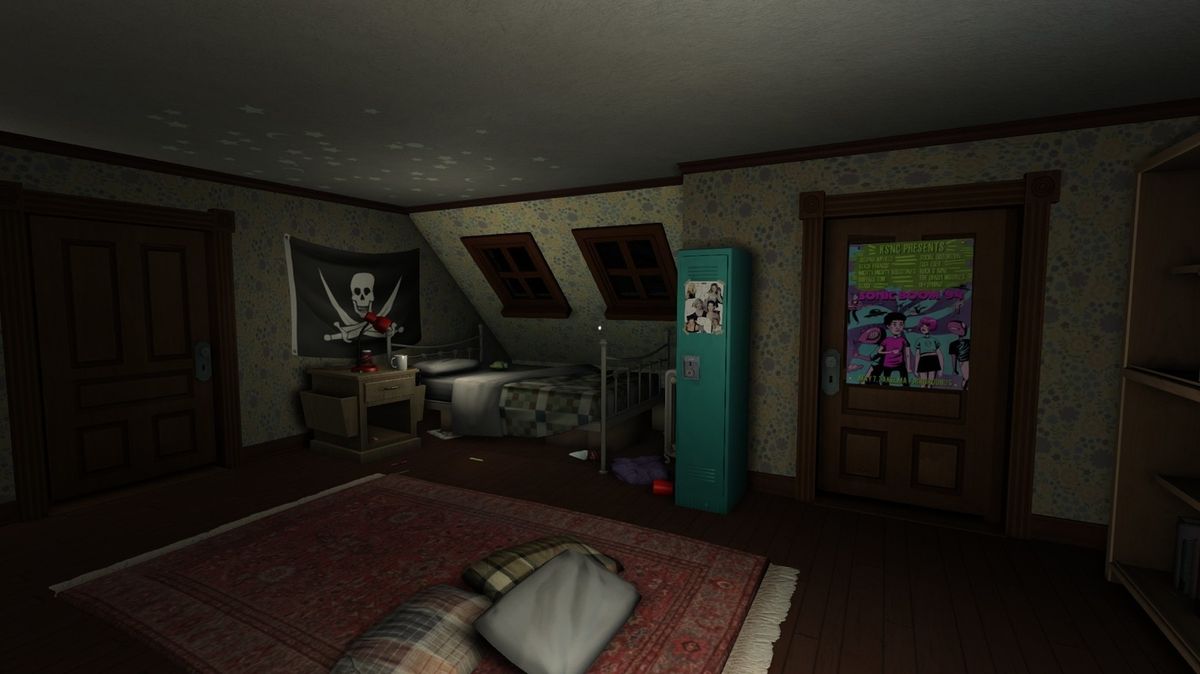
Ever wondered what makes "Gone Home" such a captivating video game? This indie gem, developed by The Fullbright Company, has intrigued gamers since its release in 2013. Set in the 1990s, the game invites players to explore an empty house, uncovering the story of the Greenbriar family through environmental storytelling. Unlike traditional games, "Gone Home" focuses on narrative and exploration rather than combat or puzzles. Its unique approach has earned it critical acclaim and a dedicated fanbase. Whether you're a seasoned gamer or new to the scene, these 25 facts about "Gone Home" will deepen your appreciation for this groundbreaking title.
What is Gone Home?
Gone Home is an indie video game developed by The Fullbright Company. It’s a first-person exploration game that focuses on uncovering a story rather than traditional gameplay mechanics. Players explore a seemingly empty house to piece together the narrative.
- Release Date: Gone Home was released on August 15, 2013.
- Platform Availability: Initially available on PC, it later expanded to consoles like PlayStation 4, Xbox One, and Nintendo Switch.
- Game Engine: The game was built using the Unity engine.
- Setting: The story unfolds in a large, empty house in Oregon during the year 1995.
- Main Character: Players control Kaitlin Greenbriar, who returns home to find her family missing.
Unique Gameplay Mechanics
Gone Home stands out due to its unique approach to storytelling and gameplay. It focuses on exploration and environmental storytelling rather than combat or puzzles.
- No Combat: Unlike many games, Gone Home has no combat or enemies.
- Environmental Storytelling: Players piece together the story by examining objects and notes scattered throughout the house.
- Non-linear Exploration: The game allows players to explore the house in any order they choose.
- Interactive Objects: Almost every object in the house can be picked up and examined.
- Audio Diaries: The game features voice-over diaries that provide insight into the story.
Story and Themes
The narrative of Gone Home is rich and layered, touching on various themes and personal stories.
- Family Drama: The game explores the dynamics and secrets within the Greenbriar family.
- LGBTQ+ Representation: It features a coming-of-age story involving Kaitlin’s sister, Sam, and her relationship with another girl.
- Historical Context: The game is set in the mid-90s, reflected in the technology and cultural references found in the house.
- Emotional Depth: The story delves into themes of love, identity, and acceptance.
- Mystery Elements: Initially, the game presents itself as a mystery, with players uncovering clues to understand what happened to the family.
Development and Reception
The development and reception of Gone Home highlight its impact on the gaming industry and its critical acclaim.
- Small Team: The Fullbright Company was a small team of four people during the development of Gone Home.
- Critical Acclaim: The game received high praise for its storytelling and atmosphere.
- Awards: Gone Home won several awards, including the BAFTA for Best Debut Game.
- Influence: It inspired a wave of similar narrative-driven exploration games, often referred to as "walking simulators."
- Sales Milestone: By 2014, the game had sold over 250,000 copies.
Cultural Impact
Gone Home has left a lasting mark on both players and the industry, influencing how stories can be told in video games.
- Educational Use: Some educators use Gone Home to teach narrative structure and character development.
- Fan Theories: The game has sparked numerous fan theories and discussions about its story and characters.
- Modding Community: A small but dedicated modding community has created additional content and stories using the game’s assets.
- Merchandise: Official merchandise, including posters and soundtracks, has been released due to the game’s popularity.
- Legacy: Gone Home is often cited as a pivotal game in the evolution of narrative-driven indie games.
Final Thoughts on Gone Home
Gone Home isn't just a game; it's an experience. It redefined storytelling in video games, showing that a simple, heartfelt narrative can captivate players. The game's attention to detail, from the meticulously crafted house to the emotional depth of the characters, sets it apart. Its success paved the way for more indie games to explore unique storytelling methods. Whether you're a seasoned gamer or new to the scene, Gone Home offers a memorable journey that stays with you long after the credits roll. If you haven't played it yet, give it a shot. You'll find yourself immersed in a story that's both touching and thought-provoking. This game proves that sometimes, the most powerful stories are the ones closest to home.
Was this page helpful?
Our commitment to delivering trustworthy and engaging content is at the heart of what we do. Each fact on our site is contributed by real users like you, bringing a wealth of diverse insights and information. To ensure the highest standards of accuracy and reliability, our dedicated editors meticulously review each submission. This process guarantees that the facts we share are not only fascinating but also credible. Trust in our commitment to quality and authenticity as you explore and learn with us.
